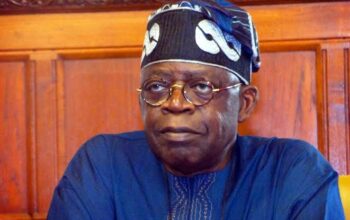Manny Ita
The Nigerian Supreme Court has firmly slammed the gavel shut on the case of Farouk Lawan, a former prominent lawmaker now convicted of bribery. Lawan, once seen as a fighter against corruption, finds himself on the other side of the bars after a lengthy legal battle stemming from a 2012 scandal.
The story unfolds back in 2012 when Lawan served as the chairman of a House of Representatives ad-hoc committee investigating widespread fraud in the nation’s fuel subsidy regime. This multi-billion dollar program designed to ease the pump price for citizens was allegedly rife with abuse, and Lawan’s committee was tasked with cleaning up the mess.
Femi Otedola is a prominent businessman whose company Zenon Oil and Gas found itself under the committee’s microscope. Accusations swirled, and amidst the investigation, Lawan allegedly demanded a cool $3 million from Otedola to ensure Zenon wouldn’t be implicated. The shocking twist? Otedola, determined to expose the attempted extortion, secretly recorded the conversations and subsequently turned them over to authorities.
This bombshell revelation triggered a public uproar and thrust Lawan from the pedestal of anti-corruption crusader to the dock as an accused perpetrator. Prosecutors charged him with three counts: demanding a bribe, receiving a $500,000 bribe (a portion of the initial demand), and giving false information to the police.
The initial trial in 2013 found Lawan guilty on all three counts and sentenced him to seven years in prison. However, he appealed the verdict, and the Court of Appeal in 2022 reduced the sentence to five years while acquitting him on two charges. Unwilling to accept this, Lawan took his plea to the Supreme Court, hoping for a complete exoneration.
But his gamble failed. The Supreme Court, after scrutinizing the evidence and arguments, upheld the five-year jail term for the bribery conviction. While Lawan escaped punishment on the other charges, this verdict marks a significant fall from grace for a man who once championed the fight against corruption.
This case reverberates through the Nigerian political landscape and serves as a stark reminder that even those entrusted with safeguarding integrity can succumb to personal greed. The fuel subsidy scandal remains a painful scar on the nation’s financial and political fabric, and Lawan’s conviction, though met with mixed reactions, underscores the ongoing struggle against corruption in Nigeria.





